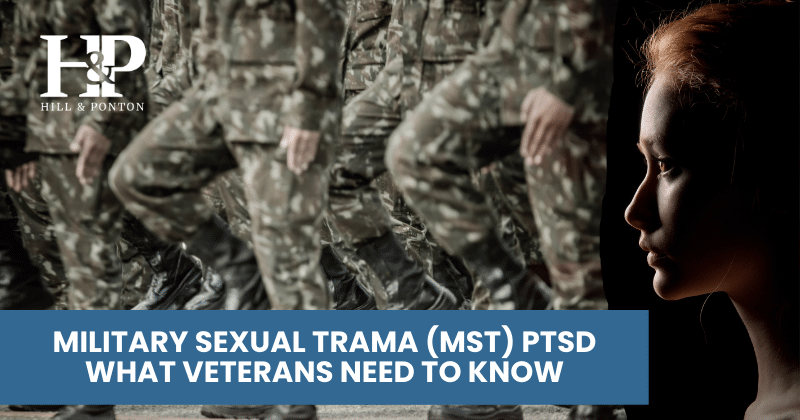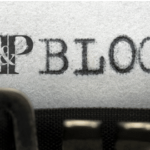The term military sexual trauma (MST) refers to any incidents of sexual assault, threatened sexual assault, or ongoing threatened sexual harassment experienced or witnessed by a veteran while serving in the military.
Both women and men may experience a military sexual trauma, though the overwhelming majority of survivors are women.
If you were involved in an involuntary sexual act, witnessed the victimization of another individual, or encountered a disturbing traumatic sexual act while working as a medic or corpsman, investigator, military law enforcement officer, supervisor or in any other professional context, you may have experienced MST.
The event could have happened either on active duty, or while serving on duty in the Guard or Reserves.
For survivors of MST, even the treatment and aftermath of a sexual assault be traumatic.
In some cases, the MST survivor of a personal assault may contract a sexually transmitted disease.
Even if there’s been no transmission, the fear of it can cause additional trauma.
Survivors may have to undergo a pregnancy test, which can be stressful as well.
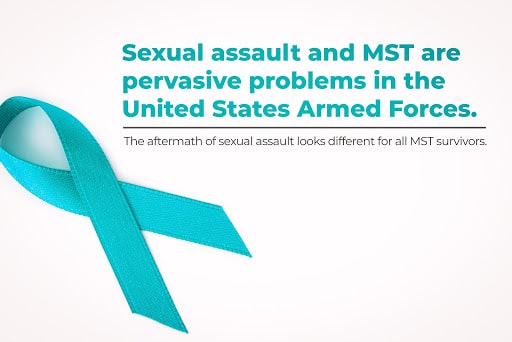
MST and PTSD
It’s important to grasp the essential difference between MSTs and post-traumatic stress disorder, or PTSD.
PTSD is a potentially debilitating psychological condition arising from traumatic events.
With PTSD, the survivor regularly experiences unwanted or intrusive memories, or relives the trauma on a frequent and sustained basis.
PTSD frequently causes survivors to alter their activities and routines to avoid triggering memories or associations.
It causes anxiety, depression and other problems that adversely affect the survivor’s social, family and professional life and lifestyle.
MST is an underlying trauma to the medical condition known as PTSD.
It is a possible cause of PTSD, but is not the disorder itself.
Similarly, the VA does not pay benefits for MST directly, but for PTSD, if the veteran is diagnosed with it.
Thousands of MST-Related PTSD Benefits May Have Been Wrongly Denied
Not everyone exposed to MST experiences PTSD as a result.
However, many veterans have applied for and been wrongly denied their PTSD claims arising from military sexual trauma.
A recent report from the VA Inspector General’s office found that during just a six-month period in 2017, VA officials improperly refused benefits to more than 1,300 veterans – the vast majority of them women.
Nearly half of these cases involved improper processing by VA health care staff, who failed to follow the Veterans’ Benefits Administration’s own policies.
One of the problems veterans and VA officials encountered was a lack of documentation in military medical records.
Physical injuries are routinely noted in medical records and are easy to spot.
But many instances of military sexual trauma are not noted in military medical records, but in other documents.
In many cases, VA claims officials improperly denied claims based on a medical record review, but failed to look at other potential source material that would document the claim.
This occurred despite a 2011 VA policy directing claims officials to take a “liberal approach” to documenting MSTs.
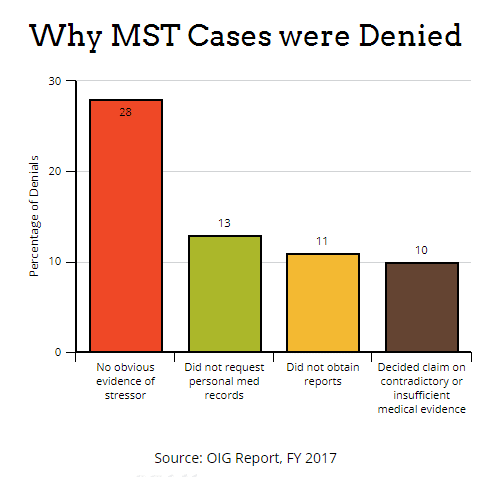
In other cases, veterans’ claims got rejected because claims officials failed to call the veteran, or failed to use the required language in correspondence to the veteran.
One of the most frequent reasons for improper denials of MST survivors’ claims was the failure to request PTSD medical evaluations even when existing documentary evidence mandated further evaluation.
In order to correct the problem, the Inspector General recommended that the VA review all claims from the beginning of FY2017, which began October 1st, 2016.
The IG also recommended that all MST-related PTSD claims go before a specially-trained group of claims processors.
If you have been wrongly denied benefits for PTSD, anxiety or other disabling conditions that have arisen as a result of military sexual trauma, call Hill & Ponton today to discuss your claim.
You may be entitled to compensation, including backdated pay.
Need help now? Call the DoD Safe Helpline at 877-995-5247. Staffed 24 hours/day, 7 days/week

MST Statistics
A 2017 survey found that more than 5,200 service members said they had experienced a sexual assault that occurred during their military service.
76% of military sexual trauma incidents are not reported to law enforcement.
Of those survivors who did not report the incidents, 1 in 4 of them stated they feared retaliation from co-workers or from their chain of command.
1 in 3 of those who choose not to report state they believed the process would not be fair, or that nothing would be done about it.
According to VA data, about 15% to 36% of women veterans and 1% to 2% and 1% to 2% of men report experiencing military sexual trauma at some point during their careers.
In this study, the VA defined a sexually traumatizing event as 1.) the use of force or threat of force to compel sexual contact, or 2.) uninvited and unwanted sexual attention such as touching, cornering, pressure for sexual favors and verbal remarks.
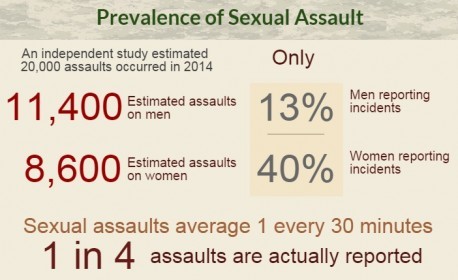
Coercive sexual harassment also includes quid-pro-quo propositions or the threat of adverse career action if the target of the abuser refuses to engage in sexual activity.
About 9% of women servicemembers and between 1% and 3% of male servicemembers report having experienced coercive sexual harassment from 2002 through 2012 – roughly the Global War on Terror time period.
In cases where a female servicemember is the victim of a penetrative sexual personal assault, 59% involved an attacker of a higher rank than the victim.
In 24% of such cases, the attacker was someone in the victim’s chain of command.
Fewer than half of female victims believed they were supported by their chain of command.
Mental Health Conditions Associated with MST Claims
Military sexual trauma is a frequent cause of post-traumatic stress disorder (PTSD).
Studies show that those with a history of military sexual trauma are also significantly more likely than other veterans to experience depression, anxiety,substance abuse, and homelessness.
About 40% of female survivors of MST have experienced homelessness at some point after discharge.
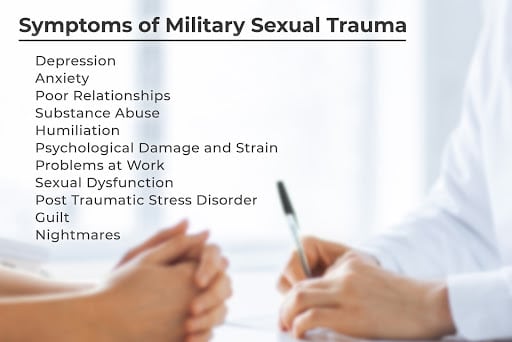
MST-Related PTSD (Posttraumatic Stress Disorder)
The VA assesses MST-related PTSD claims according to the Diagnostic and Statistical Manual – the primary manual in use among mental health care professionals.
The current 5th edition (DSM-V) lays out the following criteria required for a diagnosis of post-traumatic stress disorder:
- Exposure – You must have been exposed to death or injury or the threat of death or injury or actual or threatened sexual violence. To be diagnosed with PTSD, the event could have happened to you directly, or it could be something you witnessed happening to somebody else. It can also come as a result of learning that it happened to a relative, close friend or comrade in the service.
You can also be exposed to the trauma as a result of your professional duties.
For example, you could be haunted by details of cases you encounter as a medical or mental health professional, social worker, military medic or corpsman, first-responder or investigator.
2. Re-experiencing/Reliving – You must have documented persistent re-experiencing of the trauma. This could occur in a number of ways:
- nightmares
- flashbacks
- dissociative episodes
- frequent upsetting memories
- physical symptoms after experiencing triggering memories or events, such as nausea or shaking
- emotional distress after confronting memories of the exposure or event, such as panic attacks
3. Avoidance of trauma-related stimuli – For example, victims may avoid any places or situations that remind them of the event. The avoidance can extend to talking about the traumatic event(s) as well. In some cases, the need to avoid these places and situations can have a severe effect on your professional and social life.
4. Negative thoughts or feelings that got worse after the trauma – To receive a PTSD diagnosis, VA examiners will look for at least two of the items on this list:
- Blackouts: You can’t remember parts of what happened
- excessive self-blame, or blame for others
- excessive negativity. This includes constant negative thoughts and assumptions about yourself, or the rest of the world
- depressed or negative mood or affect
- feelings of isolation
- difficulty experiencing a positive affect
5.Trauma-related reactions that got worse after the MST event. A PTSD diagnosis requires two symptoms from this list:
- Aggression or irritability
- Destructive or risky behavior
- Hypervigilance – you’re constantly on guard against others who may victimize you, to the point where it’s hurting you
- Difficulty sleeping
- Difficulty concentrating
6.PTSD symptoms that persist for at least a month
7.The PTSD symptoms are so significant that they are distressing, or they actually impair your career, family life and/or social life.
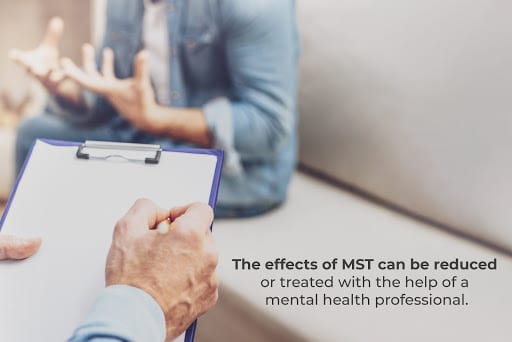
Additional PTSD Criteria
In addition to the symptoms listed above, VA examiners will also look for evidence of dissociation.
This is a common coping and survival mechanism that survivors of traumatic events may use, consciously or sub-consciously, to compartmentalize the experience and make the trauma less painful.
Examples include:
Depersonalization. This involves a sort of ‘out of-body’ experience, in which the survivor feels as if she were an outside observer, watching the trauma happening to her. She may feel detached from herself, as if in a dream.
Derealization. This is a feeling that things are not real or not actually happening.
The PTSD assessment process
Before diagnosing you with MST-related PTSD or any other form of PTSD, VA examiners will try to establish that your symptoms are not due to other issues like substance abuse, medication side effects or other illnesses.
Can You Get Service-Connected Disability Benefits for MST?

The VA does not pay benefits for MST on its own. But if the traumatic event leads to PTSD, or to other disabling conditions, then you may be able to get VA disability compensation for that. You must demonstrate a service connection to the PTSD and/or other disabling conditions in order to receive benefits.
Eligibility for PTSD Disability Compensation
You must meet these criteria to receive VA disability benefits:
- Your discharge must not be under other than dishonorable conditions
You must have received a PTSD diagnosis, based on the DSM-V criteria laid out above:
- Your symptoms must be connected to a traumatic event or stressor – including an MST – that occurred during your service in the military
- You must have documentary evidence from a medical or mental health professional that the stressor you experienced while in the service is what caused your PTSD
The MST-related PTSD Assessment and Diagnostic Process
VA will likely order a Compensation and Pension examination (C&P exam).
If you’re going for a diagnosis of PTSD, you will need to convince the examining physician that you meet all of the criteria for PTSD, and, if applicable, that your military sexual trauma is what led to your PTSD.
If you don’t meet each one of the specific criteria, the VA will deny the diagnosis.
It’s a good idea to bring a loved one to the exam, as this individual could help you explain PTSD-related symptoms that you may not fully understand yourself.
It’s also a good idea to write down all your symptoms and examples of each one before your appointment.
VA MST-PTSD Rating Criteria
The Veterans Administration currently provides disability compensation to some 800,000 veterans for PTSD.
The condition is the 6th most frequent diagnosis that qualifies for disability compensation.
PTSD is assessed in accordance with 38 CFR § 4.130 – Schedule of ratings – Mental disorders.
The VA assigns ratings based on the severity of your symptoms, with 100% being assigned to those whose PTSD symptoms are completely and totally disabling. If you qualify, you may receive an overall disability rating of 10%, 30%, 50%, 70% or 100%.
The higher your disability rating, the greater your monthly disability compensation payment from the VA.
You should receive an overall disability rating based on the highest disability rating assigned to any of your symptoms.
Some examiners assign a disability rating based on an average across your various symptoms.
This is not the correct method. If the examiner assigned your disability percentage based on an average of your symptoms, and not on your highest percentage, consider appealing the rating decision.

How Much Can I Receive For MST-Related PTSD Disability Compensation?
The amount of compensation you will receive varies based upon your percentage disability, your marital and family status and your unemployability status.
What does it take to get a 100% impairment?
For mental disorders, including PTSD, the law provides the specific criteria that qualifies for a 100% disability rating:
Total occupational and social impairment, due to such symptoms as: gross impairment in thought processes or communication; persistent delusions or hallucinations; grossly inappropriate behavior; persistent danger of hurting self or others; intermittent inability to perform activities of daily living (including maintenance of minimal personal hygiene); disorientation to time or place; memory loss for names of close relatives, own occupation, or own name.
MST-Related PTSD and Unemployability
In some cases, MST-related PTSD is so severe that it makes it difficult or impossible for the survivor to maintain employment.
If this is the case for you, you may qualify for a 100% disability rating even if your other symptoms don’t rise to the 100% level.
Unemployability is sometimes referred to as a “backdoor” to a 100% rating.
If your PTSD symptoms make it impossible for you to hold gainful employment, you should apply to claim this benefit.
Additional Resources
Military Rape Crisis Center — 202-540-9060
RAINN Sexual Assault Hotline — 1-800-656-4673
Veterans Affairs Brochure – You’re Not Alone in Recovering from Military Sexual Trauma
